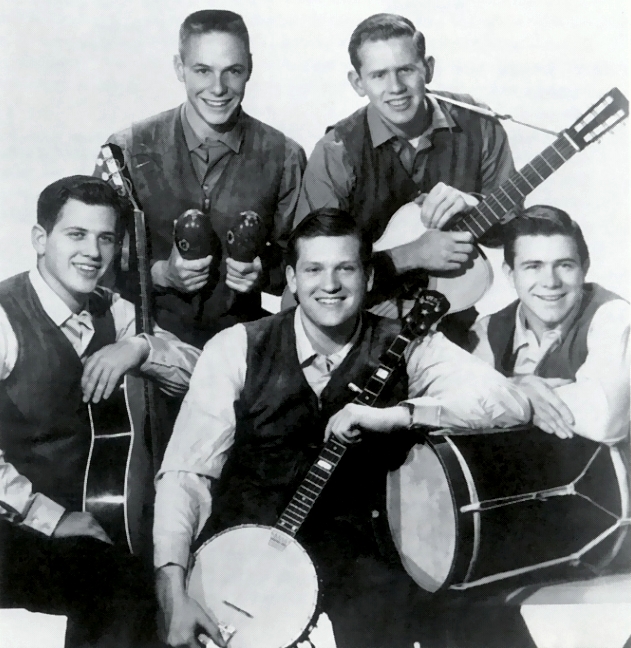
One of the more unexpected number 1s (at least, to modern ears) of 1961 was the result of the folk revival of the late 50s and early 60s. Acts such as The Kingston Trio offered a clean-cut, collegiate take on historical folk songs and presented them to mainstream audiences, and for a time, did very well. One such group were the Highwaymen, who went all the way to number 1 in the UK, US and Germany with Michael, their version of the African-American spiritual, Michael, Row the Boat Ashore.
Michael, Row the Boat Ashore was first recognised during the American Civil War at St Helena Island, one of South Carolina’s Sea Islands. It was sang by former slaves, known as freedmen, whose owners abandoned the island when the Union navy came to enforce a blockade. Abolitionist Charles Pickard Ware had come to supervise plantations on St Helena Island in 1862, and it was he that first wrote the song down in music notation. It was first published in the influential collection Slave Songs of the United States in 1867, by Ware, his cousin William Francis Allen and Lucy McKim Garrison. According to Allen, the song refers to the River Jordan and the Archangel Michael, who is often referred to as a psychopomp. A psychopomp is an entity whose job it is to guide newly deceased souls to the afterlife.
The lyrics have changed many times over the years, but the most widely known version today came from Tony Saletan, who taught it to folk legend Pete Seeger in 1954, who in turn taught it to The Weavers. The success of this influential quartet, based in Greenwich City, was largely responsible for the folk revival.
The Highwaymen were first formed at Wesleyan University in Middletown, Connecticut. The five-piece consisted of lead singer and arranger Dave Fisher, who had sang in a doo-wop group at high school, plus Bob Burnett, Steve Butts, Chan Daniels and Steve Trott. I’m not sure the decision on the group’s name was a wise move, because pictures of the freshman quintet suggest the least scary bunch of highwaymen you’d ever be likely to meet.
These Highwaymen do produce a rather sweet, homely sound, though. Beginning and ending with a lonesome whistle from banjo player Butts, it’s a polite, faithful rendition, with some nice harmonies, as well as solo spots for each singer. Some voices pull these bits off better than others, though. I suspect some people who sent this to number 1 may not have been aware of the song’s origins, and may have just bought it because it sounded religious and has a memorable tune. Mandolin player and guitarist Trott, who later became a federal appeals court judge, believed the success of their version came down to the fact that Fisher had added some minor chords that weren’t in the song before.
Other versions of Michael were also around at the time, with Lonnie Donegan reaching number six, also in 1961, and Harry Belafonte in 1962, but it was The Highwaymen’s cover that sold millions. They followed it up with a cover of Lead Belly’s Cotton Fields, which also performed well.
However, most of the group wanted to continue to pursue academic achievements. Trott was the first to depart in 1962, and was replaced by Gil Robbins, the father of actor Tim Robbins. That line-up split in 1964, with only Fisher continuing with music and putting together a new version of the group, before moving to Hollywood to compose and arrange for film and television.
The original line-up, minus Daniels, who had died of pneumonia on 2 August 1975, reunited in 1987 to celebrate their 25th college reunion. In 1990 they threatened legal action against the country music supergroup of Willie Nelson, Waylon Jennings, Johnny Cash and Kris Kristofferson, who were also calling themselves The Highwaymen. The suit was dropped when wily old Nelson offered them a slot on stage as a warm-up act.
The group disbanded for good when Fisher died of bone marrow disease in 2010, aged 69. Burnett died a year later, leaving Trott and Butts as the only surviving members. The team behind This is Spinal Tap (1982) made an affectionate spoof of the collegiate folk scene in 2004. A Mighty Wind is well worth a watch.
Written by: Traditional
Producer: Dave Fisher
Weeks at number 1: 1 (12-18 October)